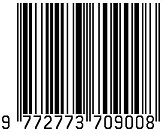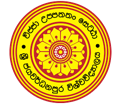Development of a Framework for Evaluating Farm Sustainability in Sri Lanka
DOI:
https://doi.org/10.31357/ait.v5i01.8402Keywords:
Sustainable agriculture, Green rating too, Rating tool development, Analytical Hierarchy ProcessAbstract
Indicator-based sustainability monitoring tools are frequently employed worldwide for sustainability assessments, including agriculture and farm systems. However, that were developed especially for Western agricultural systems. Existing international sustainability frameworks developed especially for Western agricultural systems do not address Sri Lanka's unique environmental, economic, and social aspects. This study aims to bridge this gap by developing a comprehensive rating system framework that integrates sustainability principles for local farms, including horticulture, plantation, and organic farms. Literature review and stakeholder perspectives are the beginning of the study to establish primary criteria for the framework. Through a stakeholder survey, these criteria are then validated for suitability in the Sri Lankan context. Sub-criteria are defined for each approved criterion. Sub-criteria include national and international industry standards, government legislation, and relevant benchmarks applicable to Sri Lanka. The framework is validated further through interviews with technical committees and the points for each criterion are determined using the Analytical Hierarchy Process (AHP) mathematical decision-making method. A pilot study tests the practicability of the study. The final rating system contains six main criteria with relevant sub-criteria: Management, Integrated Cultivation Management, Water Efficiency, Energy Efficiency, Waste Management, and Social Responsibilities and Awareness. According to the AHP results, the weightage of the criteria is as follows: Integrated Cultivation Management (23%), Water Efficiency (19%), Management (17%), Waste Management (16%), Energy Efficiency (15%), and Social Responsibilities and Awareness (10%). The pilot study on an organic farm in Piliyandalaachieves 65 points out of a possible 100. This verified sustainability framework served as a tool to enhance or establish sustainable practices within Sri Lanka's agriculture farm sector.Downloads
Published
How to Cite
License
Copyright (c) 2025 S.H.I.S Gunasiri, Pradeep Gajanayake, Sajani H. Kolambage, D.J Jayasanka, Ranjith Dissanayake

This work is licensed under a Creative Commons Attribution-NonCommercial-NoDerivatives 4.0 International License.
The Authors hold the copyright of their manuscripts, and all articles are circulated under the terms of the Creative Commons Attribution License, which permits unrestricted use, distribution, and reproduction in any medium, as long as that the original work is properly cited.
The use of general descriptive names, trade names, trademarks, and so forth in this publication, even if not specifically identified, does not imply that these names are not protected by the relevant laws and regulations. The authors are responsible for securing any permissions needed for the reuse of copyrighted materials included in the manuscript.




